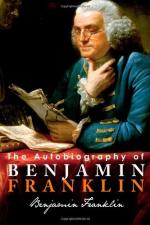1736 Chosen clerk of the General Assembly; forms
the Union Fire
Company
of Philadelphia.
1737 Elected to the Assembly; appointed Deputy
Postmaster-General;
plans
a city police.
1742 Invents the open, or “Franklin,” stove.
1743 Proposes a plan for an Academy, which is adopted
1749 and
develops
into the University of Pennsylvania.
1744 Establishes the American Philosophical Society.
1746 Publishes a pamphlet, “Plain Truth,”
on the necessity for
disciplined
defense, and forms a military company; begins
electrical
experiments.
1748 Sells out his printing business; is appointed
on the
Commission
of the Peace, chosen to the Common Council,
and
to the Assembly.
1749 Appointed a Commissioner to trade with the Indians.
1751 Aids in founding a hospital.
1752 Experiments with a kite and discovers that
lightning is an
electrical
discharge.
1753 Awarded the Copley medal for this discovery,
and elected a
member
of the Royal Society; receives the degree of M.A.
from
Yale and Harvard. Appointed joint Postmaster-General.
1754 Appointed one of the Commissioners from Pennsylvania
to the
Colonial
Congress at Albany; proposes a plan for the union
of
the colonies.
1755 Pledges his personal property in order that
supplies may be
raised
for Braddock’s army; obtains a grant from the
Assembly
in
aid of the Crown Point expedition; carries through
a bill
establishing
a voluntary militia; is appointed Colonel,
and
takes the field.
1757 Introduces a bill in the Assembly for paving
the streets of
Philadelphia;
publishes his famous “Way to Wealth”; goes
to
England
to plead the cause of the Assembly against the
Proprietaries;
remains as agent for Pennsylvania; enjoys the
friendship
of the scientific and literary men of the kingdom.
[Here the autobiography breaks off]
1760 Secures from the Privy Council, by a compromise,
a decision
obliging
the Proprietary estates to contribute to the public
revenue.
1762 Receives the degree of LL.D. from Oxford and
Edinburgh; returns
to
America.
1763 Makes a five months’ tour of the northern
colonies for the
Purpose
of inspecting the post-offices.
1764 Defeated by the Penn faction for reelection
to the Assembly;
sent
to England as agent for Pennsylvania.
1765 Endeavors to prevent the passage of the Stamp Act.
1766 Examined before the House of Commons relative
to the
passage
of the Stamp Act; appointed agent of Massachusetts,
New
Jersey, and Georgia; visits Gottingen University.




